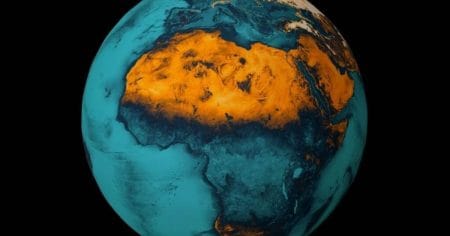The African Union Commission, in partnership with the Government of Ethiopia and the Institute for Security Studies, hosted a High-Level Policy Dialogue on the Development and Regulation of Artificial Intelligence (AI) in Africa. The event brought together delegates from over 40 African countries, including heads of state, ministers, AU commissioners, diplomats, civil society leaders, academics, and private sector stakeholders.
The dialogue was a central feature of the AI for Africa program at the 2025 Ethio Tech Expo (ETEX), held under the theme “Leveraging Artificial Intelligence for Africa’s Prosperity and Collaboration.” It focused on AI’s potential to accelerate progress on the AU’s Agenda 2063 and the United Nations Sustainable Development Goals.
Building on the AU’s Continental AI Strategy adopted in July 2024, the dialogue emphasized the need for inclusive, ethical, and sustainable AI ecosystems that allow African countries to shape and benefit from AI technologies.
Ethiopia Calls for Local Ownership of AI
Ethiopian Prime Minister Abiy Ahmed officially opened the event, stating that AI is now “the engine of transformation across sectors, geographies, and societies.” He emphasized Africa’s intention to become an active contributor to AI innovation, not a passive consumer.
“We made a deliberate choice not to remain passive consumers of imported innovation, but to become active contributors, leveraging AI to address challenges grounded in our own realities,” Abiy said.
AU Sets Ambitious Vision for AI Development
Selma Malika Haddadi, deputy chairperson of the African Union Commission, reiterated the AU’s vision of using AI for socioeconomic development, promoting homegrown talent, and enabling multisectoral, multistakeholder governance. She called for investment in renewable-powered data centers, regional compute hubs, and cross-border infrastructure to address Africa’s limited AI compute capacity—currently just 1% of the global total.
“Africa holds vast datasets and linguistic diversity. If used ethically, these can power culturally relevant AI systems that preserve our heritage while addressing contemporary needs,” she said.
Bridging the Gaps in Skills and Infrastructure
In a panel titled “Collaborative Strategies for AI Adoption in Africa,” AU Commissioner for Infrastructure and Energy Lerato D. Mataboge outlined four main barriers to scaling AI: limited digital infrastructure, a skills gap, lack of quality datasets, and underfunding.
She noted that while AI startups are emerging in agriculture, health care, education, and language services, funding is uneven. More than 83% of AI startup capital in the first quarter of 2025 went to just four countries: Kenya, Nigeria, South Africa, and Egypt.
“AI should help narrow the digital divide, not widen it,” she said. Mataboge also highlighted brain drain as a critical issue, urging member states to educate and retain local talent: “The next generation of AI architects must be African, educated in Africa, and working to solve African problems.”
Global Perspectives and Cross-Continental Cooperation
Two focused panels expanded the conversation. The first, “AI for Africa: Lessons from Around the World,” featured speakers from the UK, UAE, China, and Brazil. The second, “Imperative for AI Development, Governance Approaches, and the Need for Cooperation,” included experts from Senegal, Meta, and Addis Ababa University. These sessions provided valuable insights into international best practices and governance models.
Action Over Talk: A Commitment to the Future
In its concluding communique, the AU declared AI a strategic priority and pledged to build digital infrastructure, skills, datasets, and compute capacity to support responsible, ethical AI development. The goal: to drive inclusive economic growth, reduce risks, and accelerate progress toward Agenda 2063.
The dialogue also featured an exhibition of African digital innovations, reflecting both political commitment and homegrown ingenuity.
To sustain the momentum, the next High-Level AI Policy Dialogue will be held during the AU Summit in February 2026 in Addis Ababa.






